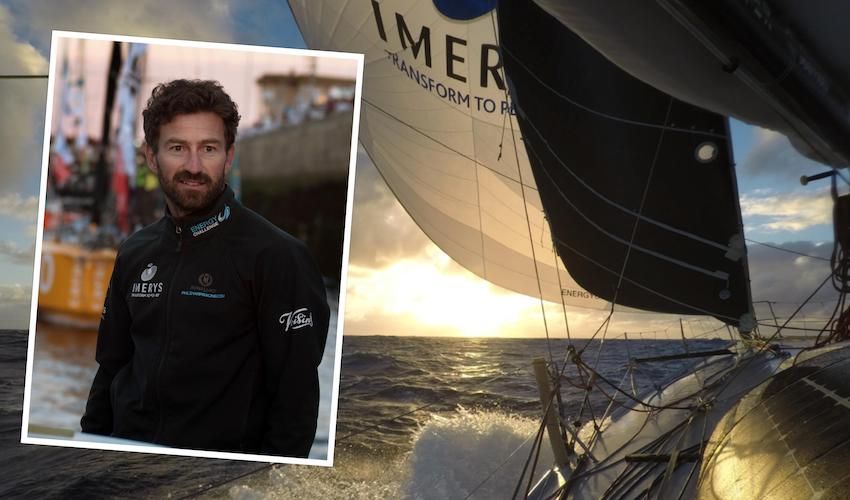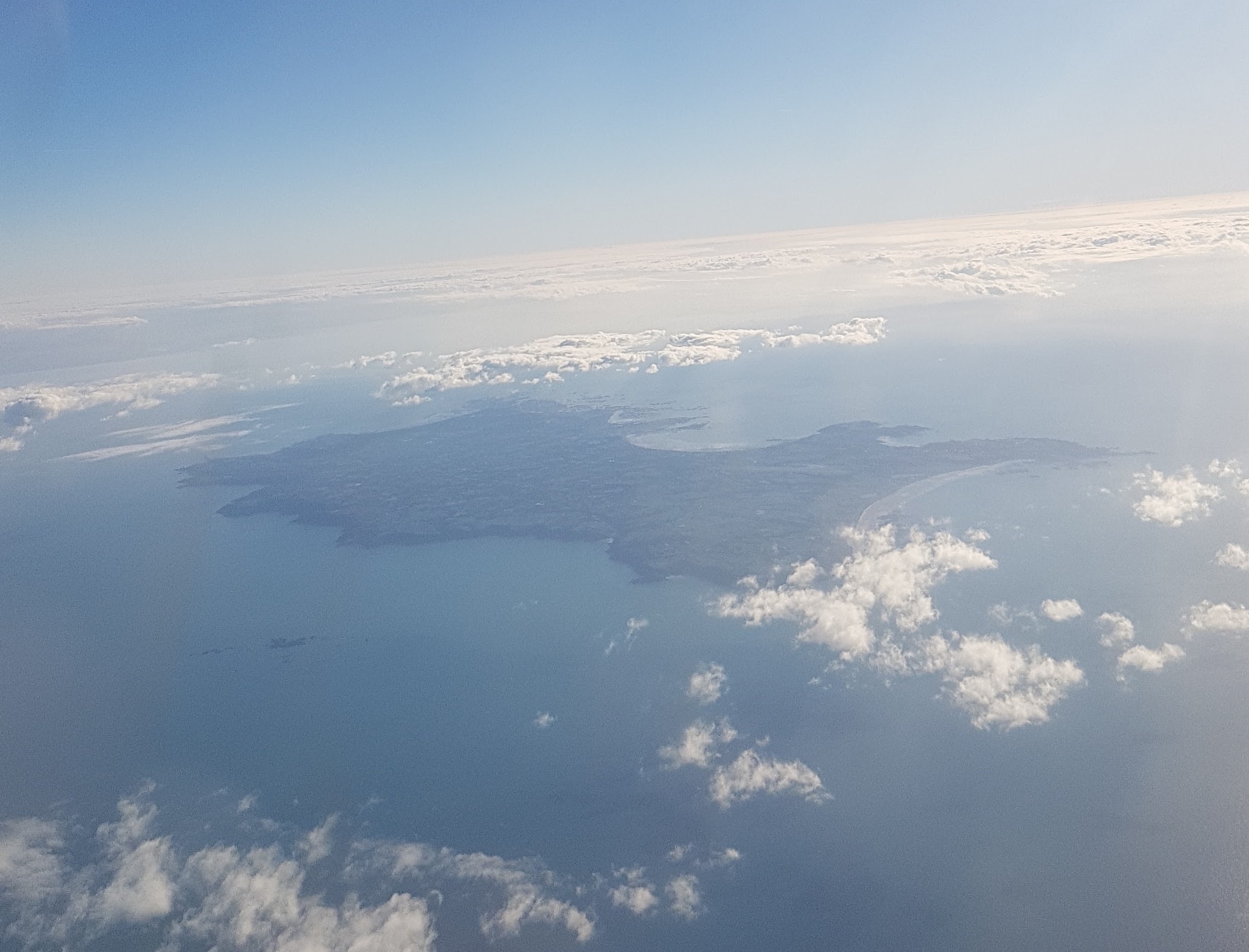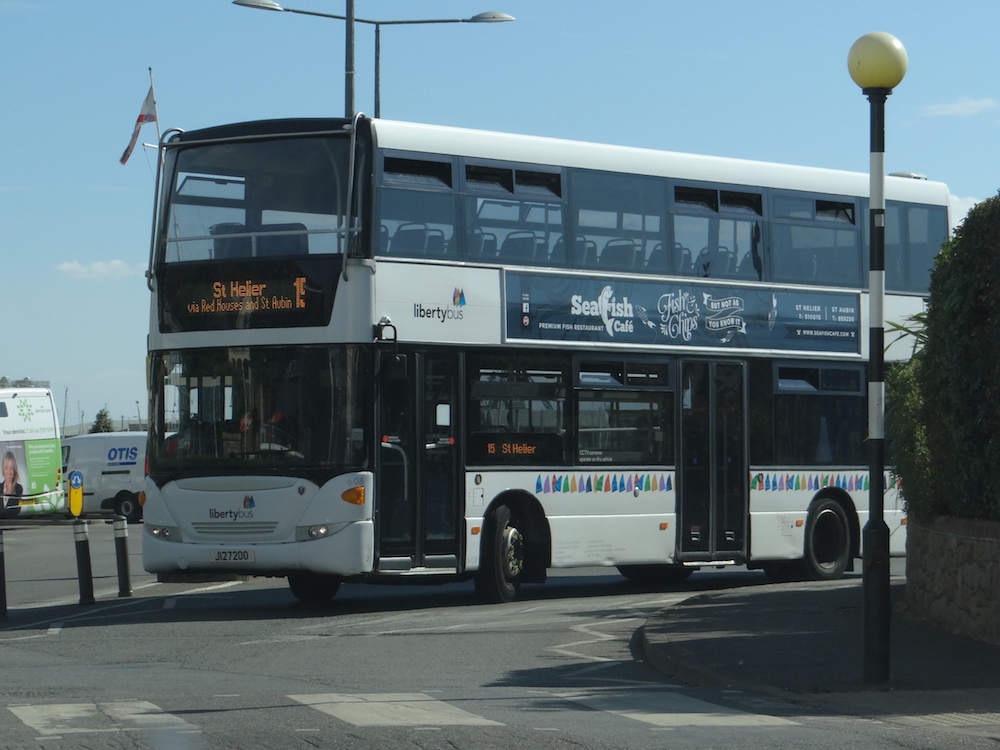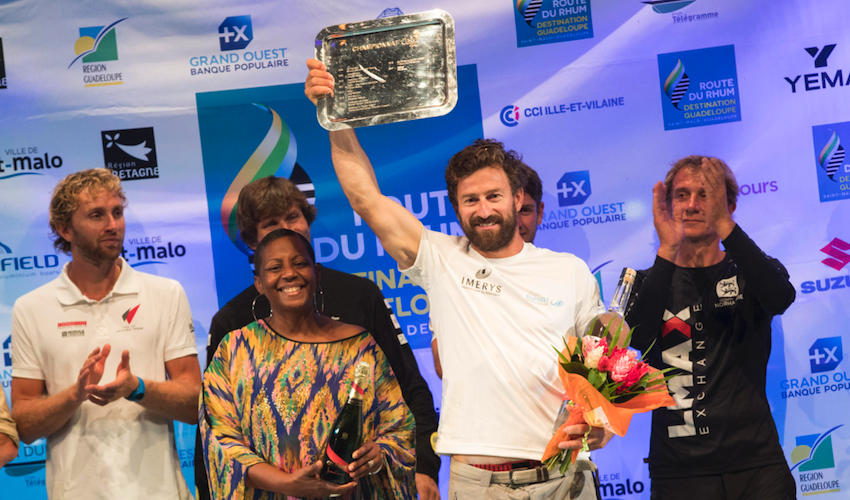

An award-winning Jersey sailor, whose racing boat only uses eco energy, is urging islanders to ditch fossil fuels in order to clean up the "very dirty" marine sector and make the whole island a greener place.
Phil Sharp recently sailed to third place success in the 3,550-mile transatlantic Route du Rhum race on the only fossil-free vessel in the fleet.
He hoped that his efforts would prove to other sailors that using 'clean energy' is no barrier to success. Now he's looking to extend that message to islanders and Jersey's government too in a bid to change the way we think about transport on land and at sea.
The Jersey-born sailor says there are vital technologies the marine sector needs to embrace to decarbonise, with different options available depending on the use and craft of the boats. Better energy storage is one of the changes that would benefit everyone.
Pictured: Phil says there are vital technologies the marine industry can invest in.
“It would make the ships more efficient As for the transport industry, it would enable them to optimise transport. The technology is advancing. The ferries of the future could be entirely electric, recharged at night and completely zero-emission with biofuels," he told Express.
“What makes sense is to harness electric propulsion. It would bring 30 to 40% of savings. It involves a generator working with a battery and the electric propulsion system. It keeps the engine at his maximum efficiency. This kind of technology is already available but it relies on investment to change the engine drive. On the long run though, the running costs are lower.”
The industry could also make the move to synthetic fuels, or even better biofuels. “Biofuel is much cleaner, much less aromatic and has less toxic components than fuel. It is very interesting for shipping.”

Pictured: Phil Sharp would like to see Jersey rely less on fossil fuels.
Phil says that much more could be done locally so that the island is not so reliant on exclusively fossil fuels, for which costs are only going to go up as resources become more limited. He would like to see the government prioritise decarbonising the island's transport on land and at sea.
Phil would also like to see more investment in green energy, especially biofuel. “It should be made available. It is easy and relatively simple to convert an engine to run on it. It would reduce the pollution and toxicity that come from diesel fuel, lower carbon emission. It is important for the marine industry but also for inshore vehicles.
“They could also import a bio-derived diesel, which is produced from waste residues such as vegetable oil or cooking oil. It uses feed stock and is renewable. The island could grow new crops and reprocess the waste to recycle it into fuel.”

Pictured: Biofuel could be used for land transport, as well as boats.
He continued: “It is important for an island that is so reliant on import and export of energy. We really need to take it seriously... There is a massive potential for Jersey to invest in transformations for the maritime transport, not to mention land transport. We need to be very serious about converting the island to sustainable energies."
With only a few weeks to go before the beginning of the new season, Phil is determined to continue to show the potential of renewable energy. With his team, he is currently looking at prototypes of new technologies.
He said his green mission has so far received "really good support from the island", which he hopes to continue to "build on" as he continues to investigate how to make transport more sustainable.

Pictured: Phil has won the Class 40 Championship two years in a row.
In terms of personal goals, Phil is also looking to move up a class this year and join Imoca 60, which includes the biggest competitions in ocean racing, such as the Vendee Globe and the Volvo Ocean Race.
“We have accomplished our objectives with the Class 40 over the last three years. We have won the last two championships. With the advances in clean energies, we can outperform newer boats that run on fossil fuels.
“This is our philosophy, to promote those energies for the future. We are providing the opportunity to demonstrate a scalable energy model. We publish findings and run test beds. People think it’s a solo race but there is a really big effort in the background. 80% of the result is in the preparation done by the wonderful team behind the project.”
Lead photo: Phil Sharp captured by Ana Sutej.
Comments
Comments on this story express the views of the commentator only, not Bailiwick Publishing. We are unable to guarantee the accuracy of any of those comments.